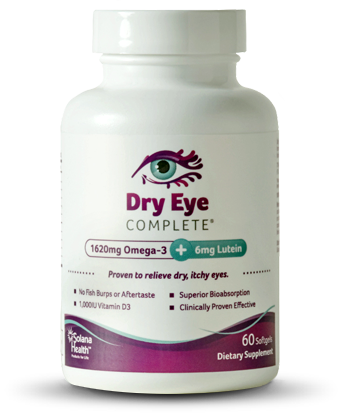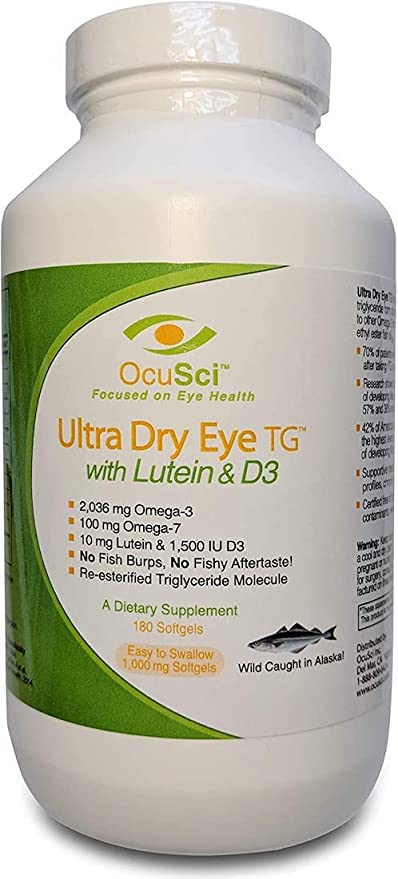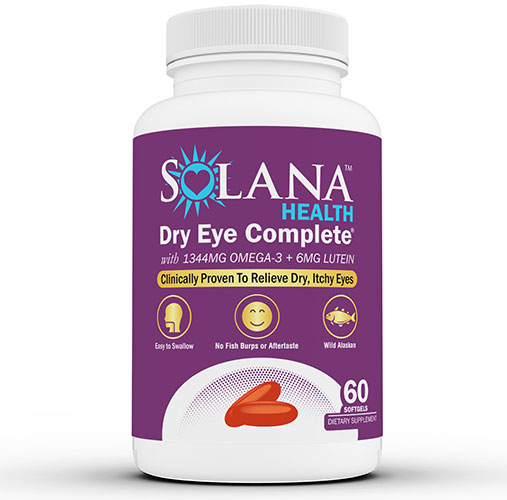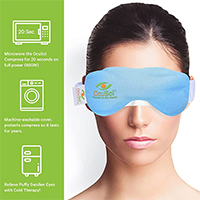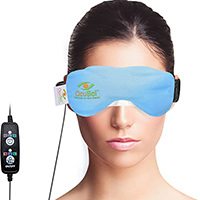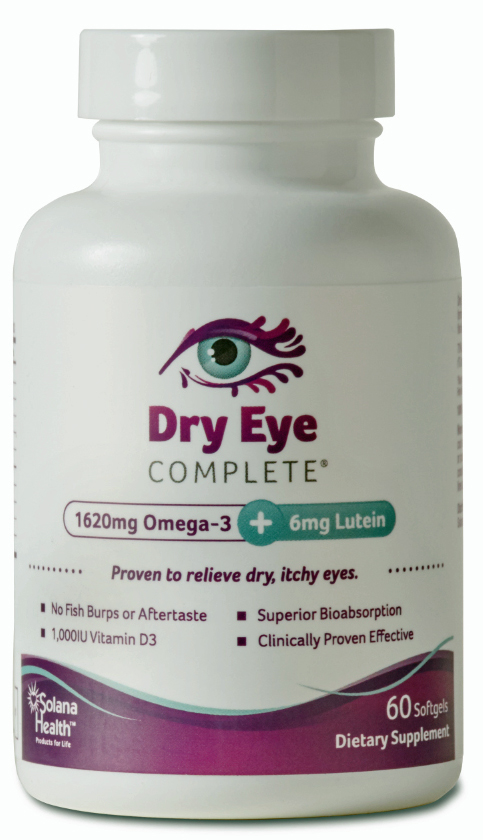If you have sticky eyes, you will likely have an accumulation of skin cells, oil, mucus, and other debris in your eye over the course of the day. The result is that your eyes can be very sticky and wet, or they can be crusty and dry, which all depend on the current rate of evaporation. Eye discharge has a role to play, as it removes waste from our eyes. But it can also be very annoying.
The eyes produce mucus, which is an essential part of your tears, all day long. When you sleep, you no longer blink and this means the discharge starts to collect, crusting in the corners. This is where the story of the sandman comes from. All of this is normal, but if the discharge becomes very heavy, or if you also experience other symptoms like light sensitivity, blurry vision, or pain, you could have an infection or another serious medical condition.
Symptoms to Look Out For
You could notice some of the following other symptoms:
- Burning
- Blurry vision
- Dry eyes
- Itchy eyes
- Watery eyes
- Pain in the eye
- Photophobia (light sensitivity)
- Bloodshot eyes
- Symptoms of the common cold or flu
The Color of Your Discharge
The color and consistency of your discharge is an important indicator as to what is actually going on. You should never self-diagnose, but have a physician look at the problem first. However, do take a look at your discharge so you can answer your physician’s questions. The table below highlights what the different colors and consistencies can mean.
| Color and Consistency | Possible Cause | Associated Symptoms | When to See a Doctor |
| Thick green or gray | · Infection of the eye
· Can be bacterial or viral · Bacterial conjunctivitis is common and the discharge is actually puss · Gonorrhea |
· Redness
· Irritation · Edema · Inflammation in follicles · Itchiness |
Always seek medical attention. If it is an infection, you could be contagious. |
| Small, dry particles | · Allergic conjunctivitis
· Allergies caused by exposure |
· Redness
· Dilated eye vessels · Tearing · Burning · Itching · Most severe symptoms on the morning |
If over the counter drugs do not work, seek medical attention. |
| Thick and crusty | · Viral conjunctivitis
· Bacterial infections (gonorrhea or chlamydia) · Allergic reactions |
· Photophobia
· Redness · Excessive tearing · Yellow, green or white discharge on lashes after sleep · Itchiness · Blurry vision |
Always seek medical attention. |
| Watery | · Stye
· Staphylococcus infection |
· Painful, puss-filled lump on the eye
· Tenderness · Swelling |
If the pain doesn’t subside or your sight is affected, seek medical attention. If styes are recurring, go see a doctor. |
| White and stringy | Dacryocystitis | · Can be chronic or acute
· Pain · Swelling · Redness · Increased tearing · Decreased vision · Ephiphora · Persistent redness |
If it is found in a child, medical attention should be sought immediately. |
| Yellow | · Blepharitis
· Bacterial infection · Malfunctioning oil glands · Seborrheic dermatitis · Eyelash mites · Eyelash lice · Allergies · Rosacea · Medication |
· Redness
· Swelling · Stickiness · Watering · Itching · Blinking · Photophobia · Eyelashes falling out · Abnormal regrowth of eyelashes · Flaking and crustiness · Greasy appearance |
If proper hygiene does not improve the symptoms, seek medical attention. |
| Yellow or white balls | · Dry eye syndrome (DES)
· Hormonal imbalance · Poor tear production · Environmental factors (sun, wind, smoke, heat, cold) · Eye injury · Chemical burn · Sjogren’s Syndrome |
· Photophobia
· Grittiness · Redness · Itching · Blurry vision · Burning sensation |
If the condition is painful, seek medical attention. Similarly, if you have sustained an injury or if your eyelid bulges, swells, or droops, or if you experience dry mouth, call the doctor. |
Specific Conditions that Can Cause Sticky Eyes
The table below highlights some of the medical conditions you may have that can cause your eyes to be sticky. Most of these conditions are not medical emergencies. However, you should always have it checked out to be safe. Additionally, a doctor will be better able to provide you with the treatment you need.
| Condition | Details |
| Allergic conjunctivitis | · Caused by exposure to allergens.
· Not contagious. · Affects both eyes. |
| Conjunctivitis | · Caused by bacterial or viral infections.
· Highly contagious. · Starts in one eye. |
| Eye herpes | · Recurrent
· Viral infection |
| Fungal keratitis | · Very rare
· Inflammation of the cornea |
| Acanthamoeba keratitis | · Parasitic infection
· Can lead to permanent loss of sight |
| Blepharitis | · Chronic condition
· Inflammation of the follicles of the eyelashes · Malfunction of the Meibomian glands |
| Meibomian gland dysfunction (MGD) | Foamy discharge |
| Stye | · Painful swelling in the eye
· Filled with push · Infection of the eyelash follicle · Should not be squeezed, because the puss can be contagious · Will disappear after a few days |
| Dry eye syndrome (DES) | · Caused by insufficient tear production or poor quality tears
· Chronic condition · Very uncomfortable |
| Contact lenses | · Poorly cleaned lenses can cause infections
· Excessive wearing of lenses can cause discomfort · Sleeping with lenses can cause infections, including ulcers |
| Injury to the eye | Can be caused due to any type of trauma |
| Ulcer | · Can lead to permanent loss of vision
· Infection on the cornea · Can be caused by trauma · Must be treated immediately |
| Dacryocystitis | · Blocked tear duct
· Swelling and tenderness |
Almost always, eye discharge, even excessive eye discharge, is harmless and will resolve itself quite quickly without any medical attention. However, it is still important to seek medical attention. This is also due to the fact that your discharge may be caused by an infection, either viral or bacterial, and these infections are often contagious, which means you could infect others in your family, as well as yourself. Furthermore, if left untreated, infections can develop more serious conditions, including blepharitis.
Treating Sticky Eyes
Treatment of sticky eyes depends mainly on what the cause is. In case of an infection, you doctor will prescribe either antibiotic or antiviral drugs, usually in the form of drops. If it is caused by allergies, then antihistamines, available over the counter, are generally enough. There are also plenty of things you can do at home, such as applying a cold or warm compress. It is very important, however, that the compress you use is clean and that you use sterilized water or a saline solution. You must also wash your hands more than often, and make sure that you don’t rub your eyes.
Do also throw away any makeup that you have used while you experienced the mucus. Change your contact lenses and make an appointment with your optician to see whether you may have an allergy to your contact fluid. Lastly, do not share towels and washcloths with other members of your family.
Sticky Eyes in Babies and Children
When you have a newborn baby, you may notice that he or she has sticky eyes. This is generally because the tear ducts haven’t developed properly, making it impossible for the tears to actually drain away. If the tear duct is blocked, your child may also be tearing without crying. Babies will often have a buildup of yellow discharge in the corner of their eye, and their eyelids may be stuck together when they wake up. Usually, the only necessary treatment is for you to clean the mucus away, using a ball of cotton with some sterile water.
If, however, it does not clear up after a few months, then you should get your child’s eye checked out. If the discharge is green or thick and yellow, or if the eye appears red, you should also have an examination performed, as this could be indicative of an infection.
As a parent, it is often difficult to determine whether you need at home or medical treatment. The table below provides you with a few more details to help you make that decision.
| At Home Care | Medical Care |
| · The eyes are just watery or sticky
· The child’s eyeball is white and healthy · The wateriness or stickiness doesn’t bother the child |
· If the eyes become red, angry, or inflamed
· The discharge is crusty or sticky and green or yellow in appearance, and it keeps coming back · Your child seems in pain and tries to rub their eyes often · Your child doesn’t want to open their eyes · Your child seems very sensitive to light · You believe they may have conjunctivitis · The eyelids or the structure of the eye don’t look right |
Resources and References:
- Eye Health Center: Conjunctivitis (Pink Eye) – Information on pink eye or conjunctivitis. (WebMD)
- Tear Duct Blockage in Babies – Information on causes and treatment of tear duct blockages in babies. (Patient.info)
- Infective Conjunctivitis – Information on the types of infective conjunctivitis, its symptoms and treatment. (Patient.info)

